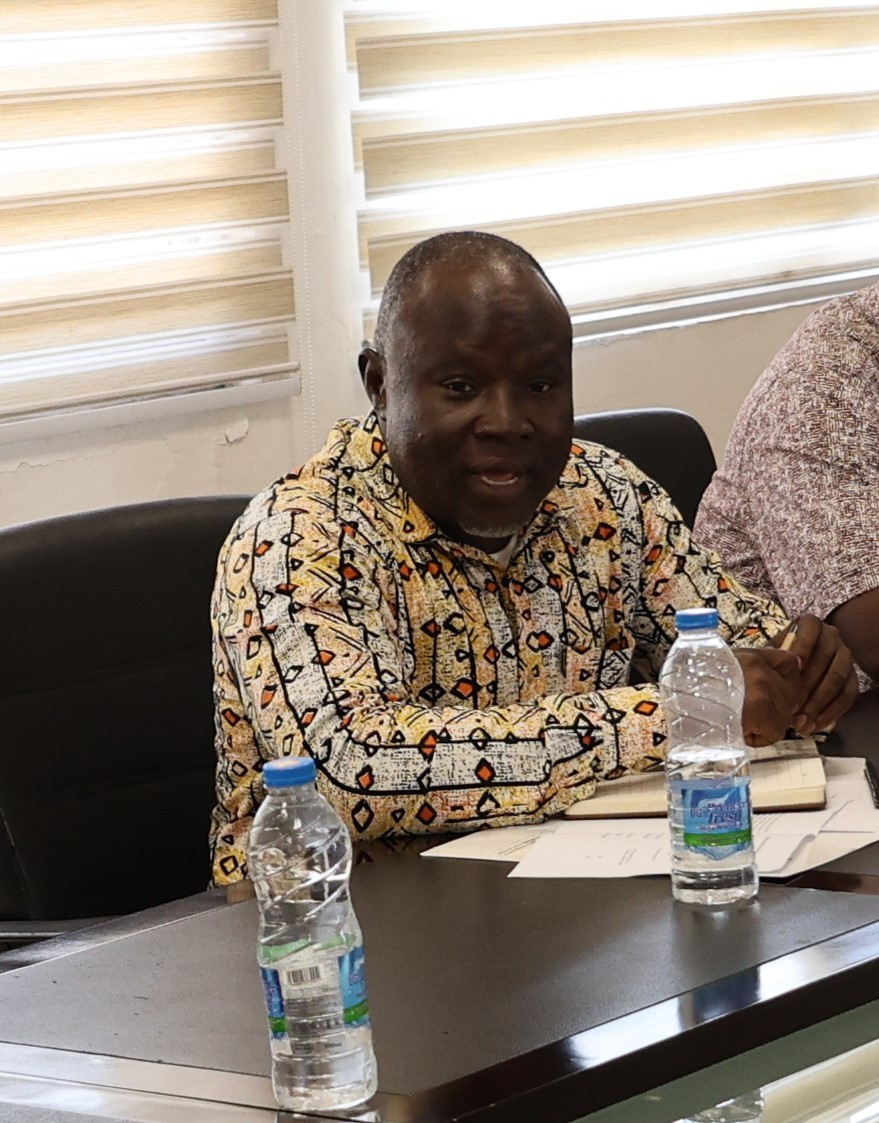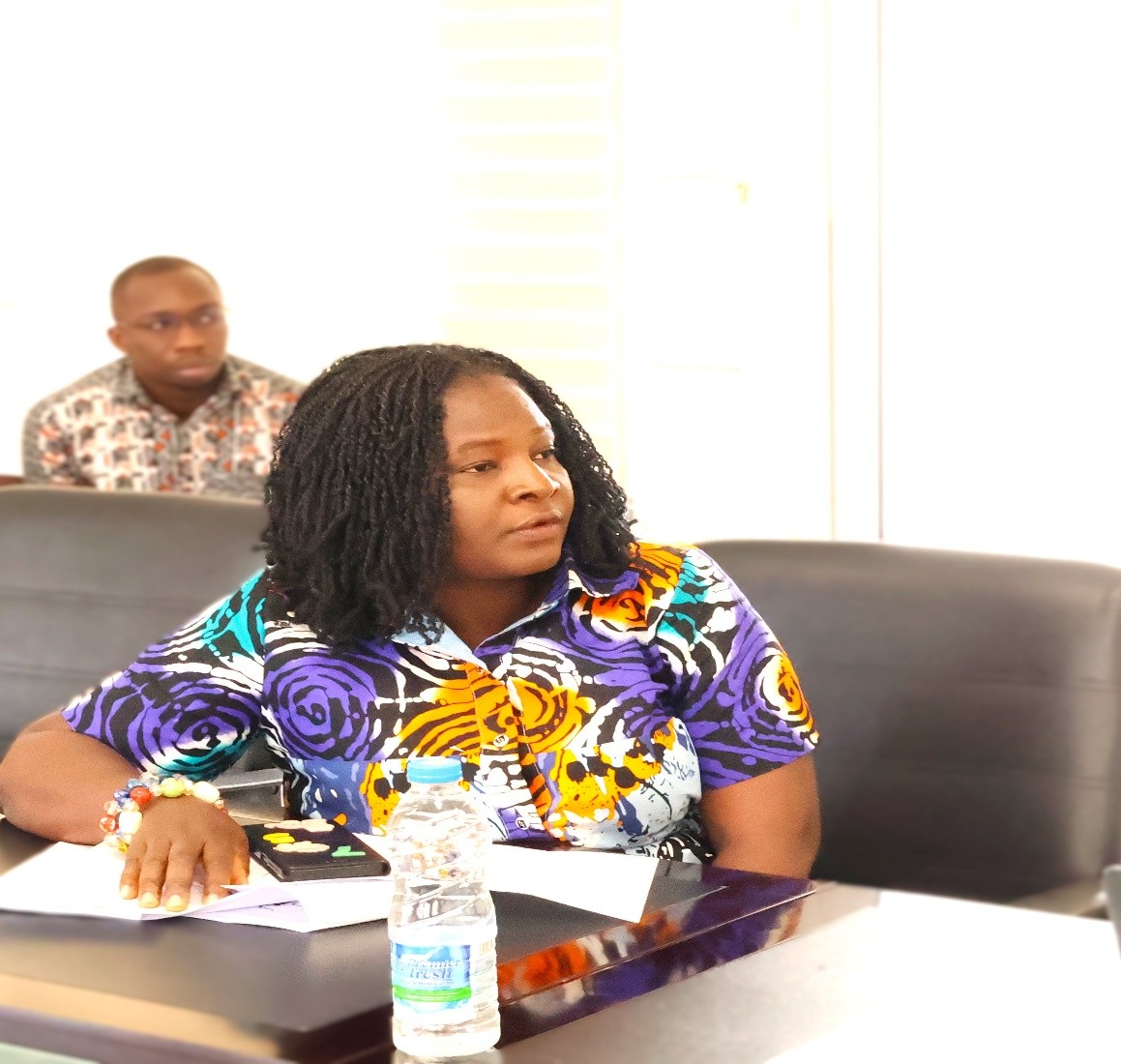Board Members Pose with LECERP Officials, Mr. Inusah Shiraz (3rd from right) Among Attendees at Inaugural Meeting
In a significant step towards strengthening the capacity of education systems that can withstand future crises, the Africa Regional Education Systems Resilience Observatory (ARESRO) project has inaugurated an 11-member Advisory Board to oversee its work in Anglophone West Africa.
The ARESRO project, spearheaded by the Legon Centre for Education Research and Policy (LECERP), seeks to deepen understanding of what makes an education system resilient, particularly in the face of disruptions such as pandemics, natural disasters and conflict. With support from the Global Partnership for Education’s Knowledge and Innovation Exchange (GPE KIX), the project covers five countries: Ghana, Gambia, Liberia, Nigeria and Sierra Leone.
At the heart of ARESRO is a simple question with profound implications: How can African education systems adapt, survive and thrive amidst growing and unpredictable challenges?
Speaking at the launch, Mr. Inusah Shiraz, Director of the Planning, Budgeting, Monitoring and Evaluation Directorate at the Ministry of Education and GPE’s focal person in Ghana, praised the initiative and reaffirmed the Ministry’s commitment.
“LECERP’s leadership on this project is commendable,” he said. “It is vital that we assess and understand the vulnerabilities in our systems if we are to build schools and institutions that can endure crises and continue to serve learners.”
He referenced recent events such as the Akosombo Dam spillage, which disrupted education in parts of Ghana, as stark reminders of the urgent need for proactive resilience planning.
“Whether it is a child with cerebral palsy or one crossing a flooded road to get to school, we must ensure our education system is equipped to respond with empathy and effectiveness,” he added.

Dr. Clement Adamba, Director of LECERP
The Advisory Board, made up of seasoned professionals from academia, civil society organisations and education ministries across the region, is tasked with providing strategic oversight, validating methodologies, and guiding the dissemination of research findings.
Dr. Clement Adamba, Director of LECERP, welcomed the formation of the Board and thanked the Ministry for nominating individuals with diverse perspectives.
He highlighted the collaborative partnership between LECERP and Makerere University in Uganda through the Resilient Africa Network. “This project is not just about academic research, it is about influencing real policies and programmes,” Dr. Adamba noted. “We are grateful for the trust placed in us and we look forward to working collaboratively across borders to drive this important agenda.”

Dr. Innocent Agbelie (right), briefing stakeholders on the ARESRO project
Dr. Innocent Agbelie, a Research Fellow at LECERP, provided an overview of the project, describing ARESRO as a “virtual observatory” that would function as an integrated educational ecosystem across Africa’s Global Partnership for Education (GPE) partner countries to be aware of the shocks, stressors, vulnerability factors, and critical capacities influencing education system resilience.
“The observatory will help us map out not just the vulnerabilities, but also the capacities within our systems,” he said. “We aim to generate evidence that can directly inform mitigation strategies and adaptation plans at both national and regional levels.”

Madam Bernice Mpere-Gyekye, Chairperson of the Advisory Board
Madam Bernice Mpere-Gyekye, Executive Secretary of the Ghana National Education Campaign Coalition (GNECC), was elected Chairperson of the Advisory Board. In her remarks, she described the project as timely and essential.
“This initiative arrives at a moment when we are grappling with persistent challenges in our education sector,” she stated. “We are committed to using our collective expertise to ensure the success of ARESRO. The stakes are high, but the opportunity to make a difference is even greater.”
Messages of solidarity from other Board members reflected a shared resolve to tackle the issues head-on. Members cited past disruptions such as civil conflict, the Ebola outbreak and the COVID-19 pandemic as painful reminders of the fragility of African education systems.
They also stressed the importance of inclusive resilience planning, particularly the role of women and girls in shaping and sustaining education outcomes during and after crises.
Solidarity messages from members of the Advisory Board highlighted both the diversity and strong commitment of the team. The members reflected on past disruptions to education, such as conflicts, the Ebola outbreak, and the COVID-19 pandemic, as reminders of the urgent need for inclusive and resilient education systems across the continent.
As the ARESRO project progresses, it is expected to offer valuable evidence and recommendations that will inform future strategies for building inclusive, robust, and adaptive education systems across Africa—systems capable of withstanding both foreseeable and unforeseen disruptions.
